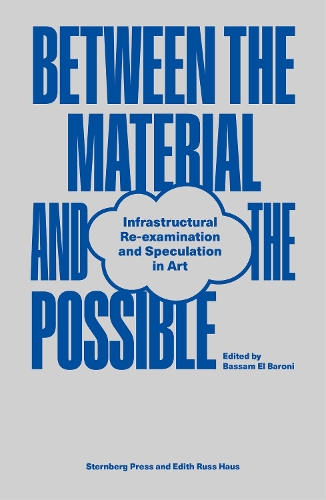
Between the Material and the Possible: Infrastructural Re-examination and Speculation in Art
(Paperback)
Publishing Details
Between the Material and the Possible: Infrastructural Re-examination and Speculation in Art
By (Author) Bassam El Baroni
Sternberg Press
Sternberg Press
22nd February 2022
Germany
Classifications
General
Non Fiction
Childrens picture books
Physical Properties
Paperback
312
Width 152mm, Height 229mm, Spine 28mm
652g
Description
The revisioning of our infrastructural futures, local and global relationalities, and historical and political legacies. Forming a comprehensive picture of the multiple processes, regulations, institutions, technologies, networks, and operations that we have come to understand as the distributed infrastructural arena in which we act, yield, and plot is a perennial challenge. Over the past decade, a growing number of artists, theorists, curators, and researchers have moved from "institutional critique" to "infrastructural critique," or toward "infrastructural speculation," in which they explore the potential of creative infrastructure-related visions and scenarios. In attempts to counter the impasse of "the cancelled future," art has immersed itself in systemic critiques and propositional thinking, addressing major challenges, such as the rampant financialization of the economy and runaway climate change. From questions around space settlements to the possibility of repurposing blockchain infrastructures and financial instruments for redistributive purposes, and from the diagrammatic potential of infrastructural thinking in artistic practices to scenario planning and economic strategizing, this collection of new essays brings together critical analysis from a broad group of contributors engaged in the revisioning of our infrastructural futures. Their interrogations span local and global relationalities, historical and political legacies, as well as future-oriented infrastructural hypotheses.
Author Bio
Bassam El Baroni is Assistant Professor in Curating at the School of Arts, Design and Architecture, Aalto University, Finland. He is the author of various essays on artists, art, and curating, editor of Fifteen Ways to Leave Badiou, and coeditor, with Ida Soulard and Abinadi Meza, of Manual for a Future Desert.
